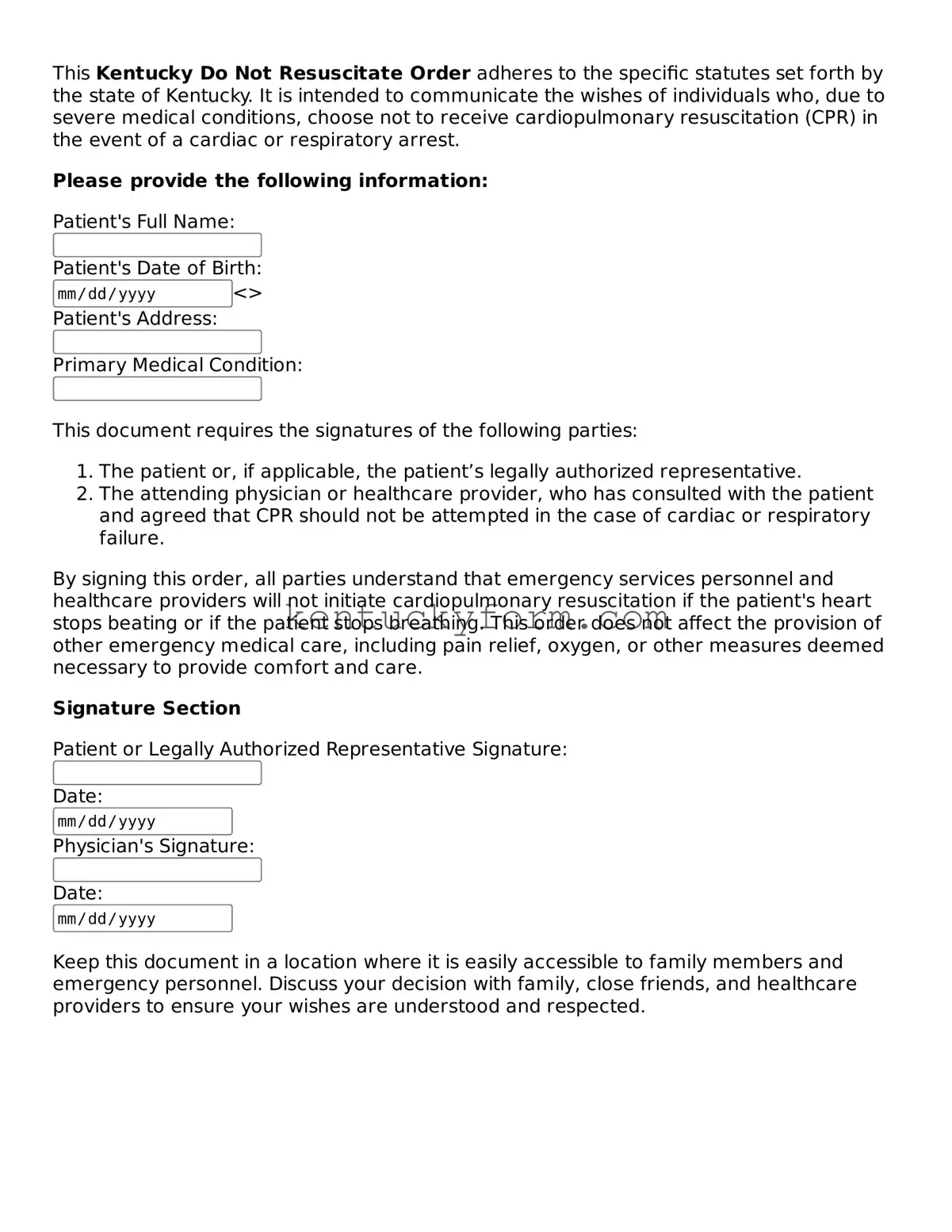A Living Will is closely related to the Kentucky Do Not Resuscitate (DNR) Order form in its essence and purpose. Living wills allow individuals to outline their preferences regarding the types of medical treatment they want to receive or refuse at the end of their life. Similarly, a DNR Order specifies a single, yet crucial aspect of one’s end-of-life care preferences—namely, the wish not to undergo cardiopulmonary resuscitation (CPR) in the event of cardiac or respiratory arrest. Both documents serve to ensure that healthcare providers honor the patient's wishes regarding life-sustaining treatments.
Another document similar to the Kentucky DNR Order is the Medical Power of Attorney (MPOA). This legal document grants a designated individual the authority to make healthcare decisions on behalf of someone else, should they become unable to do so. While an MPOA encompasses a wide range of medical decisions, a DNR focuses solely on the decision not to pursue resuscitation. Both aim to empower individuals by ensuring their healthcare wishes are respected when they cannot communicate them themselves.
The Health Insurance Portability and Accountability Act (HIPAA) release form also shares similarities with the DNR Order. The HIPAA release permits the sharing of an individual’s health information with specified parties. Though its scope is broader, like a DNR, it involves critical healthcare preferences—especially pertinent when executing a DNR requires sharing sensitive health information to ensure that one's wishes concerning resuscitation are known and can be acted upon by healthcare providers and others involved in their care.
Advance Healthcare Directives can be likened to DNR Orders as well. These directives are comprehensive documents that may include living wills, treatment preferences, and DNR orders themselves. They address a broader range of medical treatments and life-sustaining measures than DNRs do. The directive ensures that an individual's healthcare wishes are known and followed, especially in situations where they cannot make their desires known.
The Five Wishes document is another which parallels the Kentucky DNR. It is an all-encompassing advance directive that goes beyond medical issues, touching on personal, emotional, and spiritual wishes at the end of life. While it includes directives about medical treatment preferences akin to a DNR, it also expands to cover areas such as comfort care, the dignity of the patient, and wishes regarding one's surroundings when near the end of life.
A POLST (Physician Orders for Life-Sustaining Treatment) form is significantly akin to the Kentucky DNR Order as well. Both documents are designed to ensure that the wishes of seriously ill or frail individuals are followed regarding life-sustaining treatments. The key difference is that a POLST is a set of medical orders addressing a range of treatments based on current health status, whereas a DNR specifically addresses the desire not to have CPR.
Lastly, a Mental Health Advance Directive is akin to the DNR in that it addresses specific scenarios related to one’s health care decisions, albeit focusing on mental health rather than physical. It allows individuals to state their preferences for treatment in the event they are unable to make decisions due to mental illness. Like a DNR, this directive aims to respect the autonomy and wishes of the individual in specific health crises.

